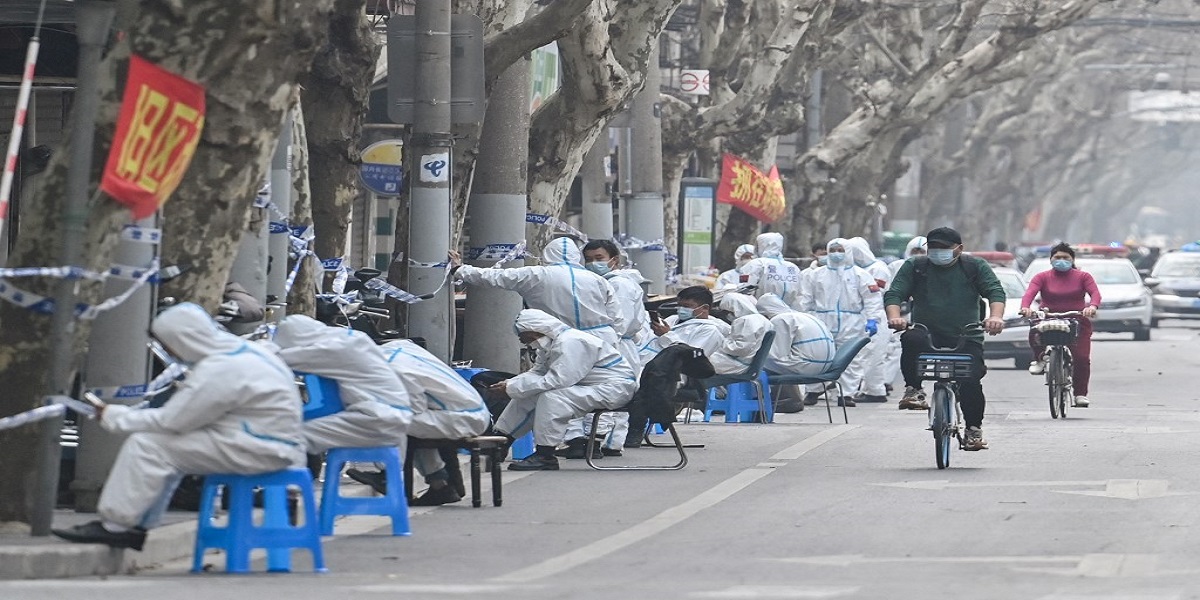On Saturday, Shanghai reported a record number of symptomatic COVID-19 cases, while other regions around China tightened controls as the nation maintained its “dynamic clearing” strategy aimed at eliminating the highly transmissible Omicron strain.
On Friday, the Zhengzhou Airport Economic Zone, a central Chinese industrial area that contains Apple Inc. supplier Foxconn, issued a 14-day lockdown “to be amended in accordance with the epidemic scenario.”
The city of Xian in northwest China warned citizens on Friday to avoid needless travels outside their residential complexes and asked businesses to allow staff to work from home or live on-site, following scores of COVID-19 illnesses this month.
In response to citizens’ fears about potential food shortages, a Xian government official stated on Saturday that the statement did not constitute a lockdown and that the city would not enforce one.
Suzhou, a city near Shanghai, said on Saturday that all workers who are capable of working from home must do so, and that residential compounds and corporate campuses should limit unneeded entrance of people and cars. It recorded almost 500 illnesses during its most recent epidemic.
Shanghai, which has been at the epicenter of China’s ongoing COVID outbreak since early March, reported a record 3,590 symptomatic cases and 19,923 asymptomatic cases on Saturday. The number of asymptomatic cases increased marginally from 19,872 a day earlier.
The city’s caseload accounts for the lion’s share of all cases countrywide, despite the fact that the bulk of its 25 million citizens remain under lockdown.
China’s program of “dynamic clearing” tries to rapidly suppress rare outbreaks when they arise. On Saturday, a commentary in the Communist Party’s official People’s Daily newspaper stated that the method was the “optimal course of action at this point in light of China’s present epidemic condition.”
However, in a letter placed on the consulate’s website on Saturday, Japan’s consul general in Shanghai urged the local authorities to address issues raised by Japanese enterprises.
Domestic support for a zero-COVID policy has waned in recent weeks as a result of food shortages, family separations, missed income, and economic anguish caused by virus-related restrictions.




















